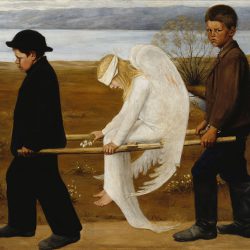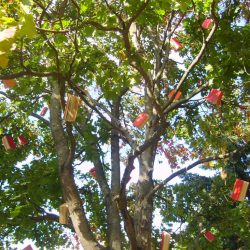- HOME
- ABOUT ME
- movies
- MEDIA
- L.Onerva
- Eino Leino
- Eeva-Liisa Manner
- Erään Opon päiväkirja
- Elämänkenttäni
- Elämäni ”viiva”
- Käyttöteoriani – se miten minä ohjaan
- Kulttuuritietoinen ja kansainvälistyvä ohjaus
- Ohjauksen järjestäminen maahanmuuttajakoulutuksessa
- Ohjauksen yhteiskunnallinen viitekehys
- Ohjaukäsite
- Oma opiskeluorientaatio
- Opiskelijoiden yksilöllisyys ohjauksessa
- EETTISET KYSYMYKSET
- Psykososiaalisen kehityksen teoria
- Suhteeni erilaisuuteen ja tehtäväni opinto-ohjaajana
- Opinto-ohjauksen ja erityisopetuksen yhtäläisyyksiä ja eroja
- Kehitykseni opinto-ohjaajana
- Maahanmuuttajan uraohjaus
- Maahanmuuttajien ohjaus ja neuvonta: kuka, mitä, miten?
- Ohjauksen tulevaisuus
- Elämänkenttäni
- Mariana Marin
- Claudiu Komartin
- Mariana Codrut
- Roland Erb
- Romanian poetry
- ESSAYS
- STORIES
- CLASSIC POETRY
- CONTEMPORARY POETRY
- TRANSLATED POEMS
- READING POETRY
- CONTACT
- translated Italian-English
- translated Italian-Romanian
- translated Spanish-English
- translated Spanish-Romanian
July, 2023
Domowe ćwiczenia na temat aniołów / Homework on angels / Tema pentru acasa despre ingeri
POSTED IN classic poetry July 8, 2023

Domowe ćwiczenia na temat aniołów / Homework on angels / Tema pentru acasa despre ingeri
Anioły
strąconesą podobne
do płatków sadzy
do liczydeł
do gołąbków nadziewanych
czarnym ryżem
są też podobne do gradu
pomalowanego na czerwono
do niebieskiego ognia
z żółtym językiemanioły strącone
są podobne
do mrówek
do księżyców które wciskają się
za zielone paznokcie umarłychanioły w raju
są podobne do wewnętrznej strony uda
niedojrzałej dziewczynkisą jak gwiazdy
świecą w miejscach wstydliwych
są czyste jak trójkąty i koła
mają w środku ciszęstrącone anioły
są jak otwarte okna kostnicy
jak krowie oczy
jak ptasie szkielety
jak spadające samoloty
jak muchy na płucach padłych żołnierzy
jak struny jesiennego deszczu
co łączą usta z odlotem ptakówmilion aniołów
wędruje
po dłoniach kobietysą pozbawione pępka
piszą na maszynach do szycia
długie poematy w formie
białego żaglaich ciała można szczepić
na pniu oliwkiśpią na suficie
spadają kropla po kropliTadeusz Różewicz
………………….
Homework on angels
Fallen
angelsare
like soot flakes
like abacuses
like cabbage rolls
stuffed with black rice
like hail
painted red
like a blue fire
with yellow tonguefallen angels
are
like ants
like the moons embedded
under the green nails of the deadangels in paradise
they are like inner thighs
of an immature girllike the stars
they shine in shameful places
they are pure like triangles and circles
quiet insidefallen angels
they are like the open windows of a morgue
like a cow’s eyes
bird skeletons
like falling planes
the flies on the fallen soldiers’ lungs
like strings of autumn rain
that connects the lips with the flight of birdsa million angels
wander
over the palms of a womanno belly button
they write on sewing machines
long poems in the form of a
white sailtheir bodies can be grafted
onto the trunk of an olive treethey sleep on ceilings
they fall drop by drop
………………….Tema pentru acasa despre ingeri
Îngerii
cazutisunt
ca fulgii de funingine
ca abacurile
ca sarmalele de varză umplute
cu orez negru
ca o grindina
vopsita în roșu
ca un foc albastru
cu limbă galbenăîngerii cazuți
sunt
ca furnicile
ca lunile infipte
sub unghiile verzi ale morțilorîngerii în paradis
sunt precum coapsele
unei fete necoapteca stelele
strălucesc în locuri rușinoase
sunt puri ca triunghiurile și cercurile
liniștiți înlăuntrul lorIngerii cazuti
sunt ca ferestrele deschise ale unei morgi
ca ochii vacii
scheletele păsărilor
ca avioanele cazande
muștele pe plămânii soldaților căzuți
ca firele ploii de toamnă
ce leagă buzele de zborul păsărilorun milion de îngeri
ratacesc
peste palmele unei femeilipsiti de buric
ei scriu pe mașinile de cusut
lungi poeme sub formă de
corabie albatrupurile lor pot fi altoite
pe trunchiul unui măslindorm pe tavane
cad picătură cu picăturătrad. M. M. Biela
UNDE MALUM?
POSTED IN classic poetry July 8, 2023

UNDE MALUM?Skąd się bierze zło?
jak to skąd
z człowieka
zawsze z człowieka
i tylko z człowiekaczłowiek jest wypadkiem
przy pracy
natury
jest
błędemjesli rodzaj ludzki
wyczesze się
własnoręcznie
z fauny i floryziemia odzyska
swój blask i uroknatura swą czystość
i nie-winnośćżadne stworzenie poza
człowiekiem
nie posługuje się słowem
które może być narzędziem
zbrodnisłowem które kłamie
kaleczy zarazazło nie bierze się z braku
ani z nicościzło bierze się z człowieka
i tylko z człowiekajesteśmy w myśli jak
powiada Kant
a tym samym odtąd w bycie
inni niż czysta natura
Tadeusz Rózewicz…………………………………….
UNDE MALUM?
Where does evil come from?
what does it mean where from
from man
always from man
and only from manman is an accident
of
nature
a
mistakeif human race
disembroils
itself
from fauna and florathe earth will regain
its splendour and charmnature its purity
and innocenceno creature beyond
human
doesn’t use a word
which can be a tool
crimea word that lies
a blightevil does not come from void
nor from nothingnessevil comes from man
and only from manwe are in thought
as Kant says
and thus in being
other than pure nature………………………………….
UNDE MALUM?
De unde vine răul?
cum adica de unde
de la om
mereu de la om
si numai de la om
omul este un accident
de creatie
al naturii
este
o eroaredacă omenirea
s-ar descalci
de
faună și florăpământul si-ar recapata
splendoarea și farmeculnatura si-ar recapata
puritatea si inocentanici o creatură in afara
de om
nu rostește un cuvânt
care poate fi un instrument
al crimeiun cuvânt care aduce
nenorocirerăul nu vine din nimic
nici din neantrăul vine de la om
și numai de la omsuntem prin gandire dupa cum
spune Kant
şi prin fiinţă
diferiti de natura pură
trad. M. M. Biela
POEM DE DRAGOSTE / LOVE POEM
POSTED IN Mariana July 5, 2023

POEM DE DRAGOSTE / LOVE POEM
Îmi amintesc de tine
ca de o vegetație pitică
ce-ar putea năpădi la început casa
iar mai târziu țărmul întunecat
ai vârstei mele tinere încă.
Așa cum Omul de Zăpadă al lui Andersen
s-a îndrăgostit într-o bună zi
de vâlvătaia unei sobe,
tot astfel caut și eu adevărul
pe care nu mi l-ai spus
atunci când ai hotărât să arunci peste cap
la început pieptenele, apoi aripa de furnică,
iarba fiarelor,și ai devenit această vegetație pitică a singurătății
prin care / eu, Omul de Marmură, Omul de Fier
cum să te mai ajung?
Mariana MARIN……………….
Love poem
I remember you
as a dwarf vegetation
that might at first overrun the house
and later the dark shore
of my still young age.
Just as Andersen’s Snowman
fell in love one day
with the whirl of a stove,
so do I search for the truth
that you didn’t tell me
when you decided to throw over your head
first the comb, then the ant’s wing,
the beasts’ grass,and you have become this dwarf vegetation of loneliness
through which / I, Man of Marble, Man of Iron
how to reach you?
photo: Mihaela LAZAREANU
trad. M. M. Biela

Copyright © 2024 by Magdalena Biela. All rights reserved.